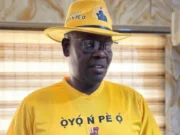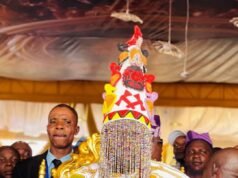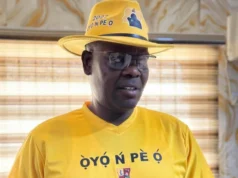The Trumpocalypsis (apologies to David Frum of the New York Times) being experienced by Americans and the American state again brings to the front burner discussions about the inherent contradictions in democracy. Given the way democracy has been made to appear as an ideal, many of its lovers are caught off-guard with events playing out when democracy comes in romance with Trumpocracy. The realities remain that even if and when Trump exits the White House come January 20, the hangover of his legacies will linger on. While the Trump presidency has spurred many scholarly writings on how such could happen to the United States, many of them have underplayed or silenced the role of anger in how America, as well as some other countries of the world where populism brought the government in power to office, to where it is. 2015 seems to be the year when populism became the order of the day in global politics. From Nigeria to the United States to the United Kingdom to France and many more, populist politicians rode on the wind of anger to gain power and subsequently are leading countries to what Mark Chou has aptly referred to as “Democide”.
It is incontrovertible that one of the fundamentals that democracy is anchored on is transition and invariably performance in office. These two are interconnected as one motivates the other. The knowledge that transition is there keeps an elected official in check to perform well in office. A government that discharges its duty perfunctorily will find itself possibly facing the music at the polls. The electorates, at such a time, become both the prosecution and the jury and dispense justice as it so deems fit. The rightness or wrongness of this judgment is another problem entirely. Since democracy relishes the tyranny of the majority over the minority, the judgment given by the electorate may be that of mobs over sane people and it is a known fact that though the mob may be in the majority, their decision may not be said to have been a product of self-consciousness or critical analysis. There are other problems that democracy throws up but they do not form the basis of this article. My concern is on how anger serves as oil to the wheel of democracy but would eventually be its clog.
When the electorates vote out a government or move against a government policy, it is out of a sense of dissatisfaction with what the government has done, is doing, or/and wants to do. While this article does not intend to theorize on whether or not the dissatisfaction with government and its policies can be appropriately referred to as anger, it works with the assumption that all forms of dissatisfaction can be subsumed under the larger framework of anger. Often times, the citizens have high expectations of their government and when these expectations are not met, it leads to disappointment. However, when such disappointments from government linger on, the people become angered about the government and maybe the system. In effect, there is a frantic search for an alternative – be it a policy or an individual. The people just want a paradigm shift from the old order and anyone who represents this becomes the right man for the job. Expectedly, opportunist politicians leverage on this anger by presenting themselves as that alternative. They identify the crux of the anger of the citizenry and lampoon the system and the government for failing to do something, even when they may have been beneficiaries of these flaws themselves. So we see a Trump hit out at the establishment in the Republican Party as well as the American State as well as make immigrants the sacrificial lamb for the level of unemployment in the country. We see Brexiters leverage on the level of unemployment in Britain to launch their nationalist agenda. We see a Buhari use the endemic corruption and insecurity under the Jonathan administration as a bait to worm himself to the hearts of Nigerians. There is the façade called the Arab Spring where the people actually thought their mass movement against a particular segment of the ruling elite will birth a systemic change. We see ANC politicians often condemn migrants as being responsible for the high level of unemployment in South Africa. The list is endless.
With anger in place, the most informed of electorates loses every sense of critical evaluation. He only rides on the wing of the narrative pushed by the elites pushing this alternative. The past and moral deficiency of this alternative no longer matters. He is now the messiah. It no longer matters whether Trump has a retinue of allegations of groping the butts of women or whether Buhari once spoke in favour of Boko Haram insurgents. What matters is the narrative that tells them what they want to hear even if it is largely false. For instance, I have always asked many to prove me wrong by showing any campaign video where Buhari promised any other thing asides fighting corruption and insecurity during the 2015 electioneering campaign. Is it not even a no-brainer for a campaign promise to state that a naira will be equated to a dollar? Unfortunately, logic takes flight where anger reigns supreme. At the end, the electorates vote for a policy or idea they do not understand. Little wonder, many Britons were on Google a day after they had voted Brexit to check what it was all about. Invariably, they voted Brexit on the strength of what they were told and not because they understood what it was all about. The reality however dawns when vengeance is fully served and the citizens come to terms with what their anger brought them.
Unfortunately, this cycle often continues unabated and the living conditions of the citizen remain unchanged or at best marginally affected. Anger is good no doubt and no government with poor performance deserves to be thumbed out at the ballots. However, when this is done using anger as a launchpad, there is a serious problem. Anger has to be managed in such a way that all those who present themselves as an alternative should be properly scrutinized alongside their policies and programmes. Take for instance, during the 2019 electioneering campaign in Nigeria, many of the so-called candidates contesting against the incumbents came with programmes that are sheerly populism-compliant as against being reality-compliant. There is a need for a proper engagement of every inch of the policy proposed. It is not bad to hate the Buhari administration and even his party but 2023 may become another 2015 if choices are driven by hatred and not a critical mind. The citizenry have a duty to ask the right questions. If you are condemning the state of insecurity in Nigeria, you must be able to provide a viable alternative. By a viable alternative, I do not mean you give a general statement as it is often the case but a clear-cut model on how you intend to approach the solution you propose. Nigerians need to jettison this aspire-to-perspire kind of politics and become more pragmatic.
Anger often succeeds in replacing a misfit in power with another misfit. 2023 may seem a bit far away but the day draws near faster than we can ever think.
Amuda, Mosigbodi B. (Plato) writes in from Ibadan.





































